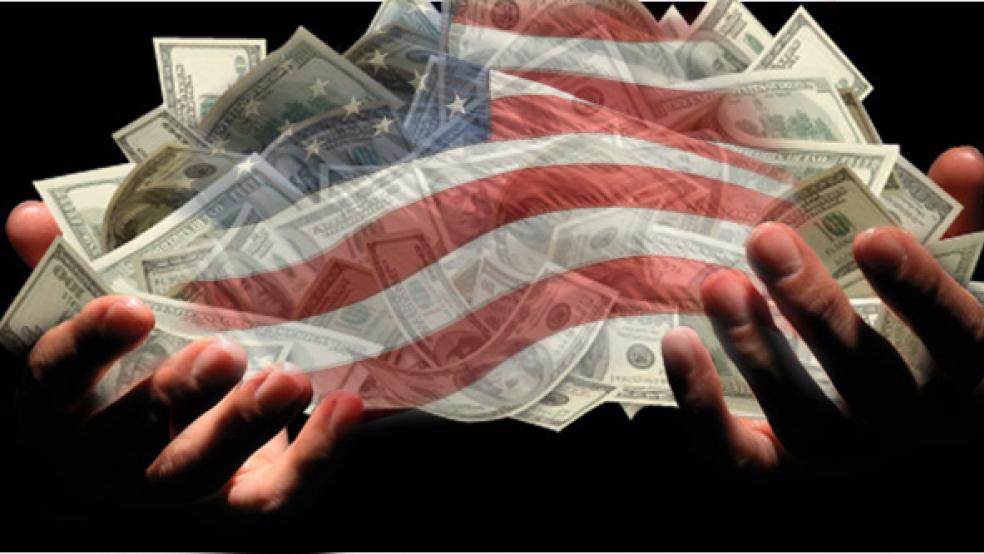Some of the nation’s top hedge fund billionaires, including many of the same financiers who are playing a major behind-the-scenes role bankrolling Republican presidential challenger Mitt Romney, helped finance Rep. Paul Ryan’s rise to prominence over the past two years.
The Wisconsin Republican’s leadership political action committee, dubbed Prosperity PAC, raised over $4.2 million in this election cycle, according to the Center for Responsive Politics. Half of its top 20 contributors, all of whom have made contributions of $10,000 or more, are principles at Wall Street, Chicago and California-based hedge funds.
The prodigious campaign fundraising – four times more than the seven-term congressman raised in any previous election cycle – allowed the House Budget Committee chairman to make major contributions to the campaigns of dozens of Republican colleagues. Rising Congressional stars can cement their leadership positions with strategic donations to endangered colleagues in tight races.
The single largest contributor this year to Ryan’s Prosperity PAC was Elliott Management’s Paul Singer, whom a Fortune Magazine profile earlier this year called “a passionate defender of the 1 percent and a rising Republican power broker.” Singer chairs the Manhattan Institute for Policy Research, a New York City-based conservative think tank.
Ryan has been an articulate spokesman for libertarian ideas and balanced budgets even as he frequently ignores those principles to curry favor with his southeast Wisconsin constituents (for instance, he was for the auto bailout before he was against it).
Singer, who gave $35,000 to the Ryan leadership PAC, is considered one of the Republican Party’s most effective campaign “bundlers.” He switched his allegiance to Romney late last year after his personal choice – Gov. Chris Christie of New Jersey – opted out of the race.
Besides his interest in lower taxes, less regulation and repeal of portions of the Dodd-Frank law, Singer has been willing to challenge foreign policy stances that affect his bottom line. After taking stakes in the sovereign debt of Argentina and Peru, Elliott Management went to court to force those countries to pay their debts in full. One international law expert told Fortune that “some of the stuff Elliott does is not good for the international system, but they're incredibly smart players and they are winning.”
In President Obama’s backyard, Chicago hedge fund billionaire Ken Griffin’s Citadel Investment Group gave $10,000 to Ryan’s leadership PAC. Badly damaged in the 2008-09 crash, Griffin’s political giving over the years has mostly gone to Republicans, according to a profile that appeared last year in Chicago Magazine. While he bundled donations for both candidates in the 2008 presidential race, in 2010 he gave $500,000 to the conservative SuperPAC American Crossroads, which is dedicated to “individual liberty, limited government and free enterprise.”
Another major contribution to Ryan’s leadership PAC came from Robert Arnott’s Research Affiliates, a California-based hedge fund renowned for its rapid-fire trading using computer-driven quantitative analysis. Other major donors to Prosperity PAC included UBS, Madison Dearborn Partners, Merchants Gate Capital, New Vernon Capital and Stonehill Capital Management.
While hedge fund managers dominate the top donors list, Ryan also received a $15,000 donation from Recycled Paper Greetings, a privately-held greeting cards company in Chicago run by Phil Friedmann and Mike Keiser. The pattern of both men’s recent political donations, like the hedge fund managers, also suggests an affinity with Ryan’s libertarian ideology.
Keiser, for instance, gave a $25,000 donation to the New Prosperity Foundation, an Illinois fund run by Republican operatives. That fund in turn gave $55,000 to American Crossroads, which is running anti-Obama ads across the country.
The Washington Post’s Fact Checker gave three Pinocchios to the ads for including misleading claims about price increases on health care and energy during his first term in office.





